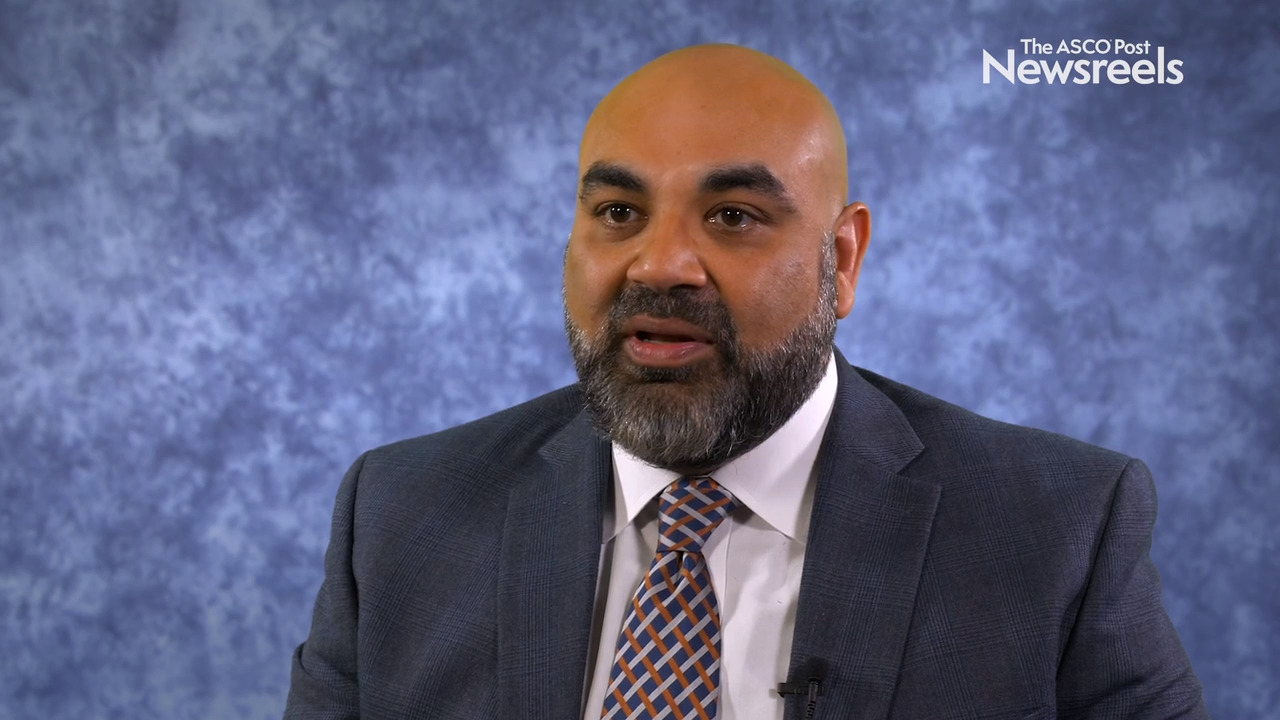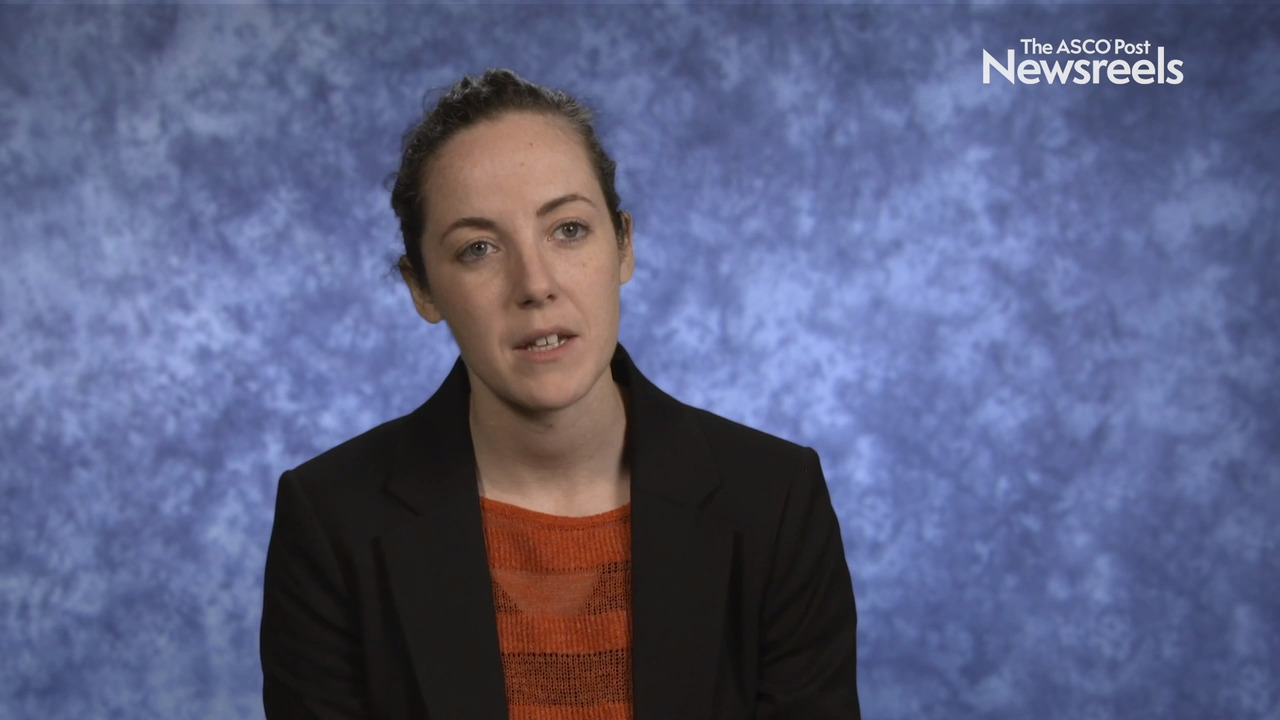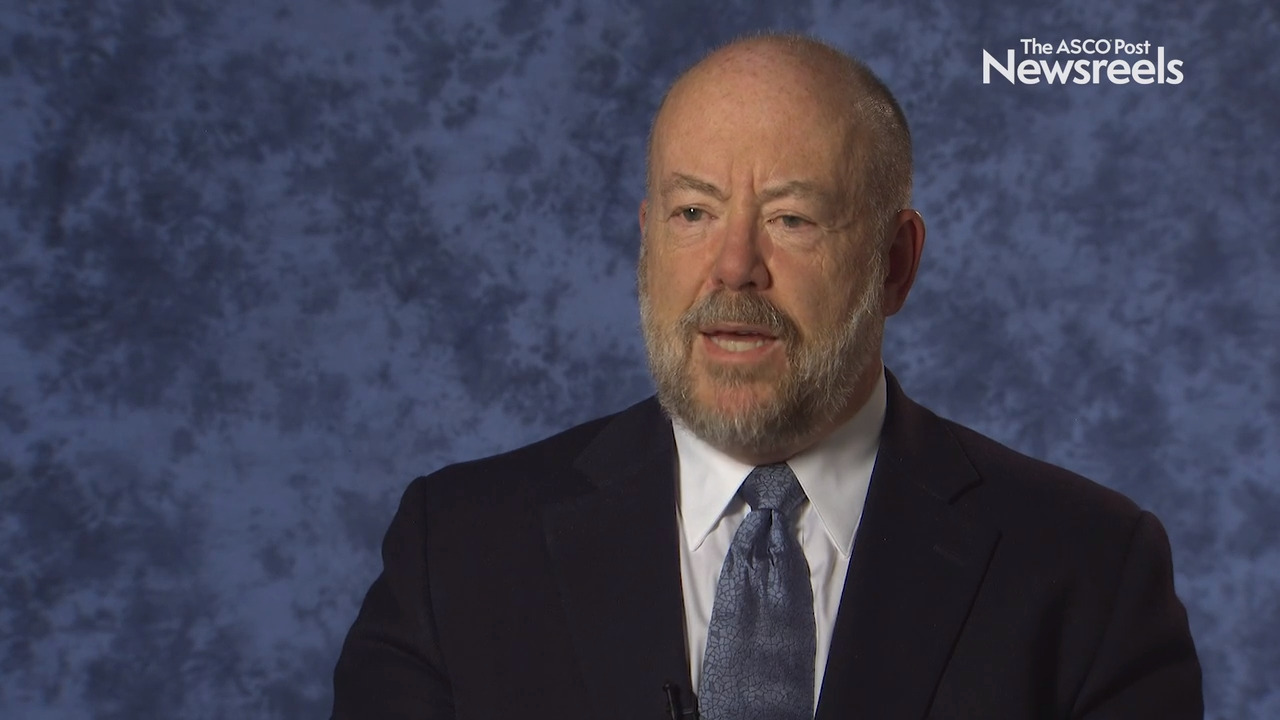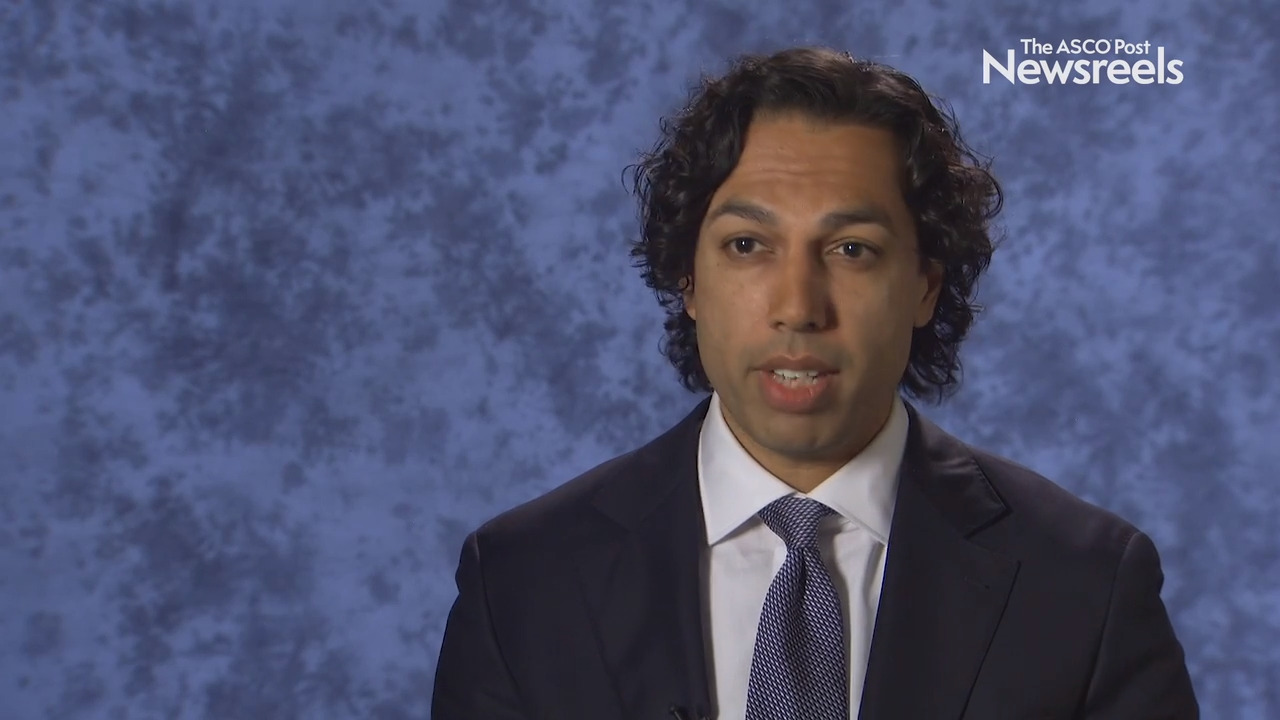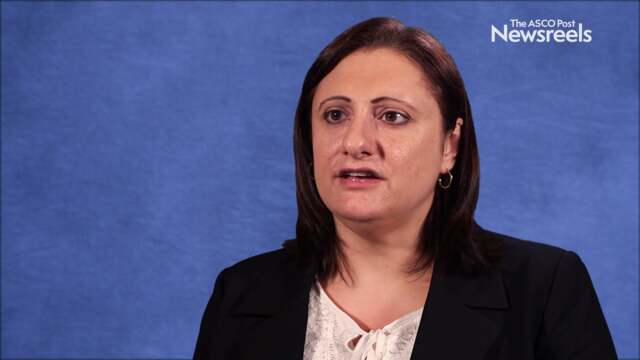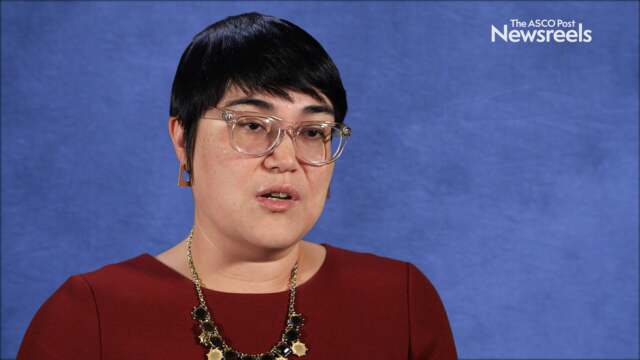Understanding the Underlying Mechanisms of Pain in Patients With Cancer
Pain is among the most difficult medical issues for oncologists to confront, said Tony L. Yaksh, PhD, Professor of Anesthesiology and Pharmacology at the University of California, San Diego, during his keynote address at the 2019 Supportive Care in Oncology Symposium. Failure to adequately manage...
Highlights From Complementary and Integrative Medicine Research and Implications for Clinical Practice
Due to COVID-19, this year’s ASCO Annual Meeting was convened using a virtual format. It was multidisciplinary, featuring more than 250 oral and 2,500 poster presentations from around the world in 24 disease-based and specialty tracks. Among the exciting talks in the session on symptoms and...
Opioid-Related Deaths in the Cancer Population vs the General Population
In a study reported in a research letter in JAMA Oncology, Fumiko Chino, MD, and colleagues found that while the incidence of opioid-related death has increased in both the general population and in patients with cancer in recent years, opioid-related death is far less common among individuals with ...
Joint Publication Focuses on Clinical Practice Guidelines on Opioid Use for Pain Management
A recently published article by Schatz et al offers new clarity around the use of prescription opioids in pain management for people with a diagnosis or history of cancer and chronic pain. The joint publication, which appeared in both JNCCN—Journal of the National Comprehensive Cancer Network and...
Gopal K. Bajaj, MD, MBA, on Reducing Opioid Use in Patients With Head and Neck Cancer Undergoing Radiotherapy
Gopal K. Bajaj, MD, MBA, of the Inova Schar Cancer Institute, discusses the results of a small study that showed prophylactic gabapentin can be safely and effectively used to significantly reduce pain and the use of opioids in patients undergoing radiotherapy or chemoradiotherapy for head and neck squamous cell carcinoma.
Hannah L. Rush, MBChB, on Prostate Cancer: Comparing Quality of Life in Patients Receiving Docetaxel or Abiraterone
Hannah L. Rush, MBChB, of the Clinical Trials Unit at University College London, discusses an analysis of the STAMPEDE trial, which showed that patients treated with abiraterone had higher scores in global quality of life as well as in the physical, social, and role function domains and lower scores for pain and fatigue over the first 2 years than those receiving docetaxel (Abstract 14).
Gabapentin and Methadone for Patients Undergoing Treatment of Head and Neck Cancer
With nearly all patients who undergo treatment for cancer of the head and neck experiencing oral mucositis, effective pain control is one of the main goals of physicians and care teams. Looking to provide more effective relief for patients—while also reducing the need for opioid painkillers—a team...
Multidimensional Palliative Care: Fewer Opioids, More Pain Control in Patients With Advanced Cancer
For opioid-tolerant patients with advanced cancer experiencing pain, relief does not necessarily have to come from a higher dose of opioids, according to findings presented at the 2019 Supportive Care in Oncology Symposium.1 The results of a retrospective analysis of 300 patients with advanced...
Assessing Cancer Pain Management in the Era of the Opioid Epidemic
A vast majority of patients with cancer receiving opioids for the management of pain will adhere to the opioids as prescribed and will have no major difficulties with dose reduction and even treatment discontinuation if the pain syndrome resolves. However, about 20% of patients with cancer are at...
Expert Point of View: Richard T. Lee, MD
Richard T. Lee, MD, Associate Professor at Case Comprehensive Cancer Center and University Hospitals Seidman Cancer Center, discussed the abstract by Galloway et al at the 2019 Supportive Care in Oncology Symposium. He remarked that starting a new palliative care consultation can sometimes feel...
With a Little Help From My Friends: Social Support Linked to Pain Reduction in Patients With Cancer
Pain may be one of the most common symptoms experienced by patients with cancer, but researchers are still unpacking its mysteries, with some surprising results. According to data presented at the 2019 Supportive Care in Oncology Symposium,1 greater social support may help mitigate pain in patients ...
Opioid Prescriptions in Patients With Cancer in Southwest Virginia
In a study in residents of rural southwest Virginia reported in the Journal of Oncology Practice, Virginia T. LeBaron, PhD, and colleagues found that most patients with cancer never received a prescription opioid medication, that few patients were admitted to hospital for opioid use disorders, and...
Prescribed Opioid Use and Infection Risk in Patients With Cancer and Treatment-Associated Neutropenia
In a German study reported in a research letter in JAMA Internal Medicine, Jakob et al found that prescribed opioid use did not appear to increase risk of infection in hospitalized patients with cancer who developed treatment-associated neutropenia. According to the investigators, recent data have...
First Survivor Views Survey Highlights Barriers to Addressing Side Effects of Cancer Treatment
Barriers to accessing appropriate therapies to address the physical and psychological side effects of cancer treatment continue to persist for patients and survivors, according to results of the Survivor Views survey conducted by the American Cancer Society Cancer Action Network (ACS CAN)....
2019 Supportive Care: Anxiety, Depression, and Low Social Support Are Significant Factors in Cancer Pain Intensity
Pain is one of the most common symptoms associated with cancer and its treatment, and feelings of anxiety and depression can intensify the level of pain patients experience, according to the results from a study by Galloway et al that will be presented at the 2019 Supportive Care in Oncology...
Access to Cannabis Products for Patients With Cancer in a State With Restrictive Medical Marijuana Laws
Results of a survey reported by Singh et al in the Journal of Oncology Practice found that a population of primarily patients with cancer enrolled in Georgia’s medical marijuana program reported concerns about the legality of marijuana-related products and their ability to obtain the products. As...
2019 Quality Care: Improving Documentation of Pain and Constipation Assessment and Management
In a study reported at the ASCO Quality Care Symposium and simultaneously published in the Journal of Oncology Practice, Chineke et al found that a Quality Oncology Practice Initiative (QOPI) initiated in collaboration with ASCO at the Georgia Cancer Center for Excellence (GCCE) at Grady Health...
Opioids for Cancer Pain: A Review of the Evidence and Current Challenges
In the wake of the opioid crisis in the United States, patients with cancer pain are often undeservedly confronted with rigid barriers to receiving the opioids they need. To compound this problem, the research around opioids in cancer pain has been limited—placebo-controlled trials are lacking,...
How an Innovative AI-Based Smartphone Application Is Addressing Patients’ Palliative Care Needs
GUEST EDITOR Addressing the evolving needs of cancer survivors at various stages of their illness and care, Palliative Care in Oncology is guest edited by Jamie H. Von Roenn, MD, FASCO. Dr. Von Roenn is ASCO’s Vice President of Education, Science, and Professional Development. During the 2019...
Chronic Pain in U.S. Cancer Survivors
In a study reported in a research letter in JAMA Oncology, Jiang et al found that 34.6% of cancer survivors in the United States report chronic pain and 16.1% report high-impact chronic pain. The study included data from 4,526 adult cancer survivors identified from 59,770 participants in the...
New Infographic, Commentaries Highlight Role of Opioids in Managing Cancer-Related Pain
As part of ASCO’s State of Cancer Care in America initiative, the Journal of Oncology Practice recently published an infographic about opioids and cancer pain, which highlights the specific needs of patients with cancer and some of the hurdles they face in trying to access prescribed opioids to...
2019 ASCO: Pain Management Program for Patients Undergoing Robotic Urologic Surgery
A specialized pain management program for patients who underwent robotic surgery for urologic cancers resulted in 8% of patients going home with narcotics after discharge, compared to 100% who would have received them without this enhanced recovery protocol. The group of patients...
Debating the Role of Opioids in the Management of Chronic Cancer Pain
Despite the increasing public awareness of the danger of the overuse of prescription opioids, drug overdose deaths continue to rise in the United States. According to the Centers for Disease Control and Prevention (CDC), from 1999 to 2017, nearly 400,000 people died of an overdose involving...
CDC Issues Clarification on Guideline for Prescribing Opioids for Chronic Pain
ASCO, the American Society of Hematology (ASH), and the National Comprehensive Cancer Network® (NCCN®) recently acknowledged receipt of a key clarification1 from the Centers for Disease Control and Prevention (CDC) on prescribing opioids to manage pain from certain conditions. The clarification...
Single-Fraction Stereotactic vs Multifraction Radiotherapy for Pain Relief in Predominantly Nonspinal Bone Metastases
In a single-center phase II trial reported in JAMA Oncology, Nguyen et al found that single-fraction stereotactic body radiotherapy (SBRT) was associated with improved pain relief vs conventional multifraction radiotherapy in patients with mostly nonspinal bone metastases. In the noninferiority...
ASBrS 2019: Opioid Management Program Reduces Post–Breast Surgery Narcotic Use
A breast surgery opioid prescription management program that analyzed current physician patterns and provided education and guidelines successfully reduced the volume of narcotics given postoperatively to patients at a large institution. These results were presented by Fan et al at the Annual...
FDA Pipeline: Applications and Designations in Prostate Cancer, Leukemia, and HER2-Positive Cancers
In the past 2 weeks, the U.S. Food and Drug Administration (FDA) accepted a new drug application and granted Priority Review for a prostate cancer treatment, granted Orphan Drug designation to a treatment for acute lymphoblastic leukemia, accepted an investigational new drug application for a...
Doxepin or Diphenhydramine/Lidocaine/Antacid Mouthwash for Radiotherapy-Related Oral Mucositis Pain
In the phase III Alliance A221304 trial reported in JAMA, Sio et al found that doxepin mouthwash and diphenhydramine/lidocaine/antacid mouthwash reduced oral mucositis pain for the first 4 hours after administration in patients with oral mucositis pain from head and neck radiotherapy, but the...
Cost and Health-Care Utilization With Targeted Drug Delivery Plus Conventional Medical Management for Cancer-Related Pain
Results of a study published by Stearns et al in JAMA Network Open demonstrated a reduction in health-care utilization and cost for patients cancer-related pain using targeted drug delivery and conventional medical management vs conventional medical management alone. The study found...
Opioid-Related Hospitalizations Among Patients With Cancer in the United States
In a study reported in a research letter in JAMA Oncology, Chua et al found that opioid-related hospitalizations among American patients with cancer are rare, increasing at a very low rate, and consist mostly of hospitalization for nonheroin opioid poisoning. The study analyzed trends and risk...
Opioid Toolkit: Helping Nebraskan Hospitals to Provide Appropriate Pain Management
As the opioid epidemic continues to sweep the United States, providers across Nebraska are facing the challenge of determining the appropriateness of pain treatment options that both meet the needs of the patients and fall within nationally published guidelines. A recent report published by the...
CDC Issues Clarification on Guideline for Prescribing Opioids for Chronic Pain in Patients With Cancer and Sickle Cell Disease
ASCO, the American Society of Hematology (ASH), and the National Comprehensive Cancer Network® (NCCN®) are pleased to acknowledge receipt of a key clarification from the Centers for Disease Control and Prevention (CDC) on prescribing opioids to manage pain from certain conditions. ...
FDA Pipeline: Safety Warning About Investigational Use of Venetoclax in Multiple Myeloma, Warning Letter on Unapproved Products
This week, the U.S. Food and Drug Administration (FDA) posted a safety statement on the investigational use of venetoclax in multiple myeloma, and also posted a warning letter against a company for illegally marketing unapproved products labeled as homeopathic. Safety Statement The FDA posted...
Opioid Use Among Older Survivors of Colorectal, Lung, and Breast Cancers
In a linked Surveillance, Epidemiology, and End Results and Medicare study reported in the Journal of Clinical Oncology, Salz et al found that chronic opioid use varied by cancer among older cancer survivors. By 6 years after diagnosis, survivors were no more likely to be chronic opioid users...
Opioid Use Following Thoracoscopic Surgery in Early-Stage Lung Cancer
In a study reported in a research letter in JAMA Oncology, Stephanie Tuminello, MPH, and colleagues found that video-assisted thoracoscopic surgery (VATS) was less likely than open resection to be associated with long-term opioid use in patients undergoing surgery for early-stage lung cancer....
Parenteral Opioid Shortage Threatens Appropriate Pain Care for Patients With Cancer
In response to the opioid-overdose epidemic, several measures have been put in place, such as the reclassification of hydrocodone as a Schedule II opioid and new requirements for physician review of prescription drug–monitoring program databases in most states. Moreover, the Surgeon General and...
Charles von Gunten, MD, PhD, on Protecting Opioid Access for Patients in Need
Charles von Gunten, MD, PhD, of OhioHealth, discusses the critical need for opioids to manage cancer pain as well as the myth of addiction, which may impede best care.
Mihir M. Kamdar, MD, on Managing Cancer-Related Pain With Artificial Intelligence
Mihir M. Kamdar, MD, of Massachusetts General Hospital, discusses study findings on a smartphone app called ePAL, which significantly reduces pain and pain-related hospital admissions by combining patient-reported outcome data and artificial intelligence via a telemedicine platform (Abstract 76).
Leslie J. Blackhall, MD, on Unregulated Opioid Access: Consequences and Outcomes
Leslie J. Blackhall, MD, of the University of Virginia, discusses abuse of opioids, prescribing responsibly, and reducing cancer pain while also decreasing the risk of misusing these agents.
The Opioid Crisis From the Oncology Perspective
As the nation battles an escalating opioid-overdose crisis, which claims more than 100 lives per day, a new study presented at the 2018 ASCO Quality Care Symposium was designed to answer a heretofore unanswered question: How common are opioid-related deaths in patients with cancer?1 Unintended...
Opioid Use Following Video-Assisted Thoracoscopic Surgery or Open Resection in Early-Stage Lung Cancer
In a study reported in a research letter in JAMA Oncology, Tuminello et al found that video-assisted thorascopic surgery (VATS) was less likely than open resection to be associated with long-term opioid use in patients undergoing surgery for early-stage lung cancer. Study Details The study...
Study Shows Invasive Lung Cancer Surgery Can Lead to Long-Term Opioid Use
Patients treated with more invasive surgical techniques for early-stage non–small cell lung cancer (NSCLC) are more likely to become chronic opioid users than patients treated with minimally invasive surgery, highlighting the need for additional research into how pain management after surgery ...
Angela M. Stover, PhD, on Patient-Reported Symptoms: Results From the STAR and PRO-TECT Trials
Angela M. Stover, PhD, of the University of North Carolina at Chapel Hill, discusses study findings on ways to alert clinicians when patients signal symptoms such as pain or diarrhea that may be cause for concern (Abstract 158).
Jay B. Shah, MD, on Reducing Opioid Use After Urologic Oncology Surgery
Jay B. Shah, MD, of Stanford University, discusses the role that surgeons can play as gatekeepers to the opioid epidemic, including the view that complex cancer operations can be performed with little to no opioid use (Abstract 269).
Fumiko Ladd Chino, MD, on Opioid-Associated Deaths in Patients With Cancer
Fumiko Ladd Chino, MD, of Duke University, discusses results from a population study she conducted of the opioid epidemic over the past 10 years and why these medications for cancer pain should continue to be excluded from restrictive-prescribing laws (Abstract 230).
2018 Quality Care: New Approach Successfully Reduces Opioid Use After Urologic Oncology Surgery
In a study conducted by Stanford Health Care, researchers achieved a 46% reduction in opioid use among 443 patients with cancer who underwent a range of urologic surgeries without increasing their pain or anxiety. They achieved this reduction through a two-pillared approach: (1) maximizing the use...
2018 Quality Care: Opioid Deaths Are 10 Times Less Likely to Occur in Patients With Cancer Compared to the General Population
According to the U.S. Department of Health and Human Services, in 2016, over 42,000 Americans died from opioid overdose, making the epidemic a top public health concern. Although opioids are commonly used for cancer-associated pain, the risks for overdose in patients with cancer were unknown. A...
New Laws Limiting Opioid Prescriptions Create Undue Barriers for Patients With Cancer and Cancer Survivors
Among other policy responses to the growing opioid epidemic, many states have enacted legislation that limits the duration or amount of opioid prescriptions issued by physicians. Although, it is clear we need strong measures to mitigate widespread overuse and misuse of opioids. These...
Expert Point of View: Ian Olver, AM, MD, PhD
Though many case studies and anecdotal reports have touted the effectiveness of cannabinoids for cancer pain, in randomized studies, the areas in which they are effective are “fairly borderline,” according to Ian Olver, AM, MD, PhD, Immediate Past President of the Multinational Association of...
Statement by FDA Commissioner on Opioid Access for Patients With Chronic and End-of-Life Pain
U.S. Food and Drug Administration (FDA) Commissioner Scott Gottlieb, MD, recently issued the following statement. The opioid epidemic continues to take an emotional, physical, and financial toll on Americans. The FDA is committed to taking every possible step to address the many facets of this...
